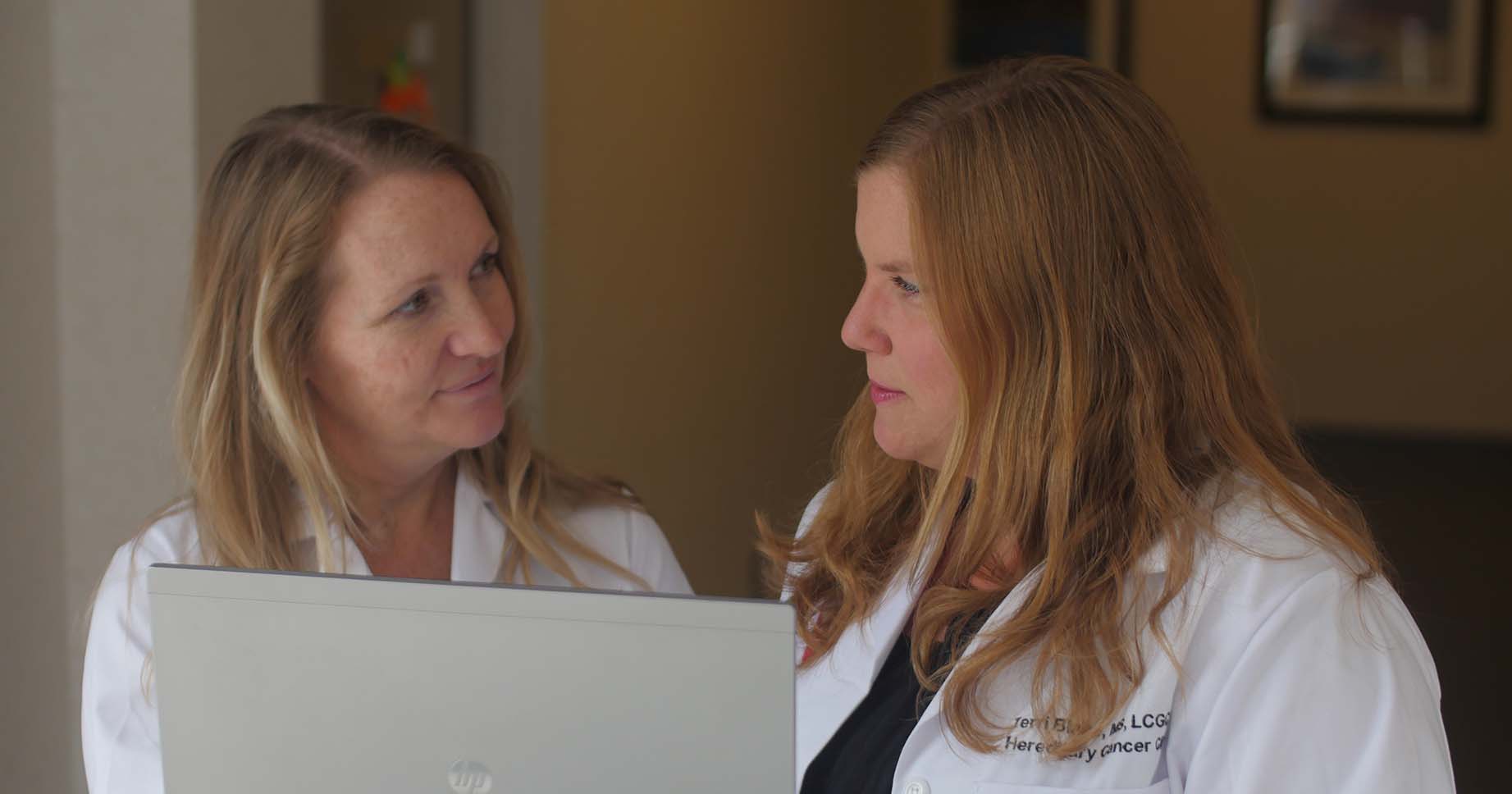
Our genes provide each of us with our own unique genetic blueprint - from the color of our eyes and hair, to how tall we become and which hand we scribble with. Genes can provide important insights into our future health and well-being. Knowing the secrets of your blueprint can, in some cases, even prevent diseases like cancer or improve your prognosis.
Nebraska Medicine leads the state in cancer genetics research and has several genetics counselors who can walk you through the process and help you determine if genetics testing is right for you.
Hereditary multi-gene panels are currently available for breast, colon, brain, pancreatic, endometrial, melanoma, prostate, kidney, endocrine and paraganglioma tumors.
Come to Nebraska Medicine for Genetics Testing Because:
Genetic Research Leaders
New technologies called next-generation sequencing allows rapid sequencing of large amounts of DNA, even a person’s entire genome in just a couple of days and a few thousand dollars.
Nebraska Medicine has been one of the early adopters of next-generation sequencing. By identifying gene mutations early on, our doctors can develop a more personalized prevention or treatment plan based on the information we know about these types of cancers. In some cases, knowing your family history and genetic make-up could save your life.
Ongoing Treatment and Prevention Guidance
Genetics is changing the way we diagnose and treat a growing number of cancers. Having this information can help guide doctors in their treatment decisions. For instance, some drugs have been shown to be most effective in fighting certain types of cancer, while in other cases, it may be determined that surgery may be the most effective treatment. If a related family member is found to carry the gene, but has not developed cancer yet, the cancer team may recommend you be more vigilant about screening, and in some cases, they may even recommend aggressive measures like prophylactic surgery.
Genetic Counselors
Just deciding whether to have genetic testing done can be complicated.
If your cancer team suspects you may have an hereditary cancer or a high probability of developing an hereditary cancer, our genetic counselors will discuss with you the pros and cons of testing, and prepare you for the social and emotional consequences of having this information. They will educate you about the possible results and how this can impact you and your family, emotionally and medically.
They will also discuss how having this information can guide and improve your diagnosis and screening and the possibility the test results might not be informative at all. They will also continue to counsel you after the screening, keep you updated with new information, guide you to reputable support groups and determine if you qualify for genetics research.

